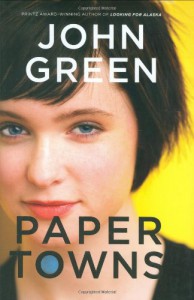What Is Wrong With Me?!

Ok let me just say that I went into this with such high expectation, that no matter how good it could have have I would still be disappointing! And what exactly went wrong I don't know.
Not a slow start they are making their fist con within the first 30 pages, so exciting, right.
The writing? right on. Completely teleported to that separate time and space.
Plot, can't ask for more.
So what exactly did go wrong, first things first this is "The Lies Of Locke Lamora" and what was it about? yes, the lies of locke lamora, the entire story was about him, his lies and his excellent conning skills, everyone and everything else was so secondary that I just skimmed at parts looking for another human, he is so great and clever that a 540 pages telling his "ADVENTURES" was too much, we know already he is a master mind we get it.
And another thing is with the setting, half of those 540 pages adventures at least were describing the city, its bridges and lights and shark fights? tsk.
 2
2
Reading progress update: I've read 160 out of 540 pages.

"You've already had your two brandies for the night, darling; your mother will murder me if I let you have another. Ask one of the men to get you a beer."
SHE'S SEVEN YEARS OLD. SEVEN.
Penryn & the End of Days, #2
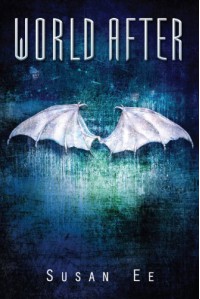
I shouldn't have read this, now it's going to be really hard to convince myself that it ends with first book. Me, thinking that getting the answers and the explanations behind all the crazy ass action in the first book here, that was going to transform this into a great series is now over. I excused all the lack in the mythology for a first book in a series like the author was saving it and being sneaky, but when it actually came it was lacking and well, plain simple. Just because you delay it doesn't mean it'll blow worlds away. Literally.
 3
3
A Review of a Debut, By Anthony Marra
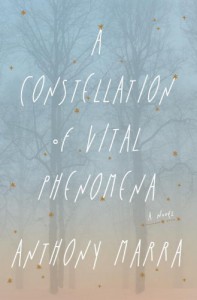
In 1994, A beautiful girl named Natasha, sat on the floor, reading the definition of life through her sister's Russian medical textbook, Life: a constellation of vital phenomena-organization, irritability, movement, growth, reproduction, adaptation.
I picked this up without reading any synopsis or anything, simply seduced by that title. I didn't know it was a historical fiction or that i was a historical fiction in Chechnya. Had I known I would have expected another story by Khaled Elhusseny and it wasn't, it was much more elegant than anything he would have written, missing that sad dull damp depression that was his main theme, but with the same desperation in it, and plenty of humor. And it's a debut novel I'll definitely be looking out for Marra in the future.
Taken place within 5 days from the abduction of Dokka, and his friend's effort to keep Havaa, Dokka's 8 year old girl safe. Those 5 days told the story of the last 10 years in the life of a small Chechen village and one number 6 hospital. It told history and future predictions, memories and hopes, secret desires and sacrifices of every single characters as well as some objects, not leaving even a single individual without adding a slice of depth and reality to their characters. In the most romantic reflective way possible with everyone's cross path in each other's tales. With great writing and throwing in some gorgeous prose every now and then just to remind you of the powerful voice, telling the story.
 4
4
A Review: The Snow Child and The Magic Of Fairytails
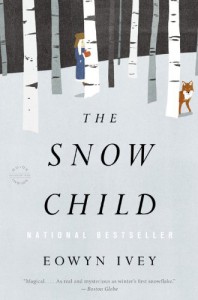
"We are allowed to do that, are we not Mabel? To invent our own endings and choose joy over sorrow?”
If you're looking for plot twists, strong magical realism theme, then The Snow Child is definitely not what to go for, the ending was even underwhelming and messy and sadly even a little anticipated. Now all of this out of the way lets take a moment to appreciate the great, rich, slowly brewing and absolutely gorgeous writing. Eowyn Ivey has taken those two stereotypical characters, even put them in the solitude in a cabin, In Alaska, and still managed to make Jack and Mabel surprise us and then some. Their pain, the unanswered wishes, their loneliness and separation. The way you feel the snow falling and see the colors of the sky, all the nature (and oh the husky and the furs and foxes *cuddles*) and beauty and hardships of being away from civilization and the 1920s. They are old but some two tough cookies though (but I would have really liked it if I wasn't reminded of their age or how old they are every other page, a little subtlety my lovely!!).
“It was beautiful, Mabel knew, but it was a beauty that ripped you open and scored you clean so that you were left helpless and exposed, if you lived at all.”
And then the fairy tail takes place, the snow child materializes and becomes the change that takes their hands and their old fingers interlace and all the space starts to vanish. The girl comes and goes, but the regrets and the mourning and the sadness never really goes away. The girl comes and goes, and sometimes we are left with the impression that she never really existed in the first place. Her tracks were never more the delicate prints in the snow, a simple mirage, a hallucination that emerged from their deepest desires (but I still think mass hallucinations are a bit impractical since there is no way they'd all have the same ones).
“In my old age, I see that life is often more fantastic and terrible than stories we believed as children, and that perhaps there is no harm in finding magic among the trees.”
 3
3
On Social Media and Connecting

A COUPLE of weeks ago, I saw a stranger crying in public. I was in Brooklyn’s Fort Greene neighborhood, waiting to meet a friend for breakfast. I arrived at the restaurant a few minutes early and was sitting on the bench outside, scrolling through my contact list. A girl, maybe 15 years old, was sitting on the bench opposite me, crying into her phone. I heard her say, “I know, I know, I know” over and over.
What did she know? Had she done something wrong? Was she being comforted? And then she said, “Mama, I know,” and the tears came harder.
What was her mother telling her? Never to stay out all night again? That everybody fails? Is it possible that no one was on the other end of the call, and that the girl was merely rehearsing a difficult conversation?
“Mama, I know,” she said, and hung up, placing her phone on her lap.
I was faced with a choice: I could interject myself into her life, or I could respect the boundaries between us. Intervening might make her feel worse, or be inappropriate. But then, it might ease her pain, or be helpful in some straightforward logistical way. An affluent neighborhood at the beginning of the day is not the same as a dangerous one as night is falling. And I was me, and not someone else. There was a lot of human computing to be done.
It is harder to intervene than not to, but it is vastly harder to choose to do either than to retreat into the scrolling names of one’s contact list, or whatever one’s favorite iDistraction happens to be. Technology celebrates connectedness, but encourages retreat. The phone didn’t make me avoid the human connection, but it did make ignoring her easier in that moment, and more likely, by comfortably encouraging me to forget my choice to do so. My daily use of technological communication has been shaping me into someone more likely to forget others. The flow of water carves rock, a little bit at a time. And our personhood is carved, too, by the flow of our habits.
Psychologists who study empathy and compassion are finding that unlike our almost instantaneous responses to physical pain, it takes time for the brain to comprehend the psychological and moral dimensions of a situation. The more distracted we become, and the more emphasis we place on speed at the expense of depth, the less likely and able we are to care.<
 7
7
A Review: Night Film
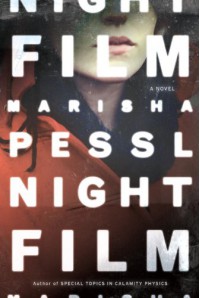
I was wrong. This was actually quite funny too (or perhaps something about middle aged cynical men with sarcastic inward comments is hilarious to me?!)
It starts very lightly with an investigative reporter, Scott looking into the suicide of the daughter of a horror movie-maker named Corodova. That man makes Tarantino look like a Disney movie directer or maybe a children bedtime stories' writer. Something about his films darkness went beyond cinematic experiences that they were turned into rare films with only nightly secret group screenings, so traumatizing people faint and scream and in some cases turn into copycat serial killers. The thing about his movies is that even long after they're finished and life goes on, Corodova still exists in your mind, the most powerful place for enemies to hide. His films told you that. The suspected but but unseen threat, fueled by the imagination, was pushing and all powerful.
Something about the film`s darkness made me wonder if I would- as If in witnessing such things I was irrevocably breaking myself in (or just breaking myself), arriving at an understanding about humanity so dark, so deep down inside my own soul, I could never go back the way I was before.... This was, in Cordovite speak,to slaughter the lamb, get rid of you meek, fearful self, thereby freeing yourself from the restrictions imposed on you by friends , family and society at large.
Even the actors that goes into on those night films, has to undergo some serious scrutinizing personal-detailed interviews.
When you working, you stayed at The Peak. You ate your meals there, you were allowed no contact with the outside world. You turned your life over to him, handing him the keys to your kingdom. That meant your mind as much as your body. Tou showed up on that first day of production, ignorant and blind. You knew nothing about the film, or who your character was, or really anything at all except your life as you'd know it was over... When you finally returned to our life after working with Corodova, it was as if all colors had been turned up in your eyes. The reds were redder. Blacks blacker. You felt thing profoundly, as if your heart had grown giant and tender and swollen.
This way he sets them free scattered around the edges of the world. Not in a (our cat, honey is now chasing Jerrys forever in a farm way).
The amount of mystery around Cordova is highlighted by his staying away from the press since 1977, staying at his estateThe Peak (a house out of a Poe short story), where he shoots all of his films. No one ever working with Cordova talk about him ever again.
And Scott the reporter having been tricked before by Corodova, losing his career chasing after him, is back investigating Ashley Corodova with the help of Hopper and Nora.
There are major plot twists, like half way through I gave up trying to figure out where this is going. They followed Ashley's footsteps to try and uncover the truth behind her death, all having ulterior motives.
What was unnerving was how much you can find out about someone once you put your mind to it beside that known public image, and their favorite poems (The Love Song of J. Alfred Prufrock by T.S. Eliot)
You'd think every time a detail is unveiled, the vagueness and mystery surrounding them would fade and the would sound like mundane ordinary people, but no, a new eerie dark atmosphere is added to the already grim aura surrounding them.
What was really interesting too was that the narrative was from the POV of Scott and not Hopper.
The end was very satisfying because you were struck when they were leveled down from these superheroes to ordinary humans where they had to live by our mortal limits.
Now, some slight spoilers:
The double nature of the story at the end was very precise as every detail was checked out by both the ordinary and the black magic.
The surreal fantasies educed due to the poisonous plants were brilliant and completely surreal!!
 3
3

Fantasitastique!
I had to make up a word to describe the raw epicness of this.
Consider me a new fan of high fantasy from here on to the end of times!!
The Final Empire, a place where ash fall from the sky. Everything is covered in soot and dirt but the nobility, who enslave the skaa. Life beneath the rule of a sadistic god. Life beneath the sun gone red. A thieving crew, in an idiotic plan hopes to change things and topple the empire with wits and Allomancy.
Packed with internal contemplations and lengthy moralistic ramblings.
A deep, dark lake. And ... blackness. The Deepness. A chaotic thing of destruction.
What is money? A physical representation of the abstract concept of effort.
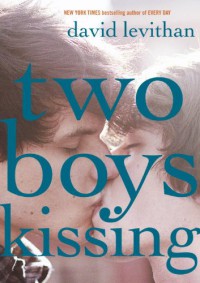
Warning, This book has a wrenching effects,will cause shudders and goosebumps.
It is safe to say that I've read this book multiple times, not that I read it over and over, but more because I found myself stopping at almost every passage and rereading it from the start and rereading it and so on. Every sentence was heaven and every line a rich quote.
I'm a sucker for:
1) Eloquent, simple but deep writing.
2) Coming of age stories.
3) Innovative point of views.
4) Various stories that cross path, make deep impacts without too much overlapping.
And yes of course all there.
Consists of various stories, around the center 'masterpiece' of the two boys kissing. A 32 hours and 10 secs kiss to break a world record. Every story is something we've heard before. The bullied, the lost soul, the new relationship, the one year old relationship and one that ended a while back. But man, oh man David puts it in such a unique way that astonished and impressed. Smooth transitions without any chapters or barriers between the stories.
All that aside, the narrating is what made it so well put together and polished the stories. That voice of experience and suffering from dead boys, dead gay boys, dead gay boys with HIV. The way they cheered and advised and held their breath at moments that mattered and their attempts to help, as much as ghosts can help the living.
We were once the ones who were living, and then we were the ones who were dying. We sewed ourselves, a thread`s width, into your history.... This is how we understand. We wore your flaws. We wore your fears. We made your mistakes.
First thing that comes to my mind about HIV is a new movie I always wanted to see about a poor woman with the disease suffering because she has to go another operation and no doctor is agreeing to performing it so she goes on a TV show to try and raise money so she could travel to have it abroad. And of course I didn't watch the movie but I only always catch the last scene where she looks straight into the camera and says: "When I die of this disease, I will be dying from your disease not mine". Your of course is society, me and you and your mother and my brother and the shame and all the arbitrary shit that we live by, all the judgement that we learn to do well before we learn how to speak.
In terms of relatability I was surprised because before anything it was about acceptance and coping and friends and family and deep conversations you`ll always remember even after the words blur you WILL remember the sensations you were left with?! The drowning metaphor for depression is probably one of the most commonly overused ones. But it`s terribly descriptive AND TRUE. The sadness pushing down on your shoulders, the barrier between the one and the rest of the world and the infuriated unjustified rage of the world not seeing or acknowledging the existence of that barrier.
On social media:
" It`s a highly deceptive world, one that constantly asks you to comment but doesn't really care what you have to say. The illusion of participating can sometimes lead to participation. But more often that not, it only leads to more illusion, dressed in the guise of reality... If you let the world in, you open yourself up to the world. Even if the world doesn`t know you`re there.
 3
3
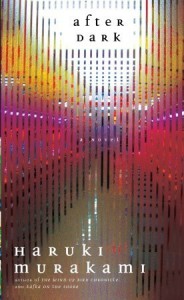 This is merely an attempt to describe this prize specimen of human creativity put into words that is Murakami, the master of magical realism.
This is merely an attempt to describe this prize specimen of human creativity put into words that is Murakami, the master of magical realism.I remember the first time I ever read Murakami it was Kafka on the shore and I was in bed with a high fever and a huge pack of tissues. So delirious, drifting to and out of consciousness, clutching the book over the covers like it`s a tiny black kitten named Yoroichi that lives in my head when it`s left home alone. That day reading from chapter 6 to 49, leaving 3 chapters for the next day.
With each Murakami book, the reader gets a feeling of unity.
1. You get the sense of understanding the realizations and reflection that is conveyed to you through the pages a little better. Like every story is stronger are more mature and all those characters live in that other world waiting for us to pick them up so they could start talking and exploring and taunting us with those eloquent analogies and metaphors.
2. The consistent themes:
Classical music.
Cats.
Conversations with strangers.
Leaving your physical body to escape into a dream world of lost
possibilities and weird sex.
Metaphysical mindf*ck (I really did tried to find a nicer word!)
The spaghetti. Any cooking really (too much in 1Q84)
So back to After dark; from the pure point of view of "We".
We are invisible, anonymous intruders.
We look.
We listen.
We note odors.
We are sheer point of view.
We cannot influence things in any way.
We hang midair over the city.
The "We" sees the events happening from 11:56 pm to 7:56 am.
The "We" unites into a single camera lens focusing in and out on Mari and Eri, sisters with one syllable different and worlds apart. Mari the younger sister is at a family restaurant reading a thick book (which she won`t tell the title. Mean mean Mari). And Eri, the older sister, the cover girl, is in a deep sleep in her own bed wearing her own pajamas in her own room.
It goes in a bit of a circle from Eri to Mari to Eri again, all those encounters and bizarre happenings that takes place After Dark.
Such places open secret entries into darkness in the interval between midnight and the time the sky grows light. None of our principles have any effect there. No one can predict when or where such abysses will swallow people, or when or where they will spit them out.
The reunion between the sisters is the key thread. On Eri`s mind from the beginning when meeting the Chinese prostitute and thinking she had never felt like she could be friend someone so easily to remembering the first time she truly felt close to her sister, their heart beating as one.
People leaving their reflection in mirrors after they leave the room.
And a beautiful girl who leaves her reality behind for another with an unplugged Tv screen as a barrier between the two.
What she is trying to do now is to transform what her eyes grasp and her senses perceive into the simplest and most appropriate words she can find. And so the words themselves emerge directed half at us half at herself.
Watching 'creatures in dark'
Sea creatures in that dark abyss of the ocean. The beautiful. The ugly. The law. Courts and judges and criminals beyond redemption.
 Theme song: https://soundcloud.com/aimlowmusic/yndi-halda-song-for-starlit
Theme song: https://soundcloud.com/aimlowmusic/yndi-halda-song-for-starlitThe unbearable lightness of being starts with a bang, arguing about Nietzsche’s eternal recurrence. And then the question of Parmeinides, Is the world really divided into pairs of opposites? Positive and negative? Weight and lightness?
Narrated in a third party`s voice, Kundera himself, even expressing that all those fictional characters are not people and how silly it would be out of an author to try and convince people of this concept, instead they are born of a situation, a sentence, a metaphor containing in a nutshell a basic human possibility that the author thinks no one else has discovered or said something essential about.
Hearing the rumblings of one`s own stomach during a moment of love, lacking the will to abandon the path of betrayals, raising a fist with the crowd in the Grand March, displaying wits before hidden microphones, all of those situations have been experienced by him.
So all of those fictional characters are his own unrealized possibilities.
And so deeper in the story he begins his own concepts as Tomas`s version of eternal return, that somewhere in the wide universe people will be born again on a far away planet, and a third time on another and so on. And for every time we are born with our previous experiences, where mankind will be born one degree more mature, expanding our horizon until the achievement of Utopia perhaps?
The novel is not the author`s confession; it is an investigation of human life in the trap the world has become. But enough. Let us return to Tomas.
The story begins with the image that Tomas is born from: Tomas gazing from a window looking across the courtyard, not knowing what to do.
Tomas is a somewhat successful surgeon, meets Tereza at that time waitress because of six improbable fortuities (I looked that one up!) and they lived happily ever after with three dogs ,a cat and a white fence.
Sorry, that didn`t happened, that would have been awefull!!
Tomas is a bit of a womanizer, but sweet Tereza with Anna Karenina in her arms, having a fever, even walking through the door carrying a half dead crow in a blanket, her hands shaking, her nightmares, insecurities and Vertigo has a *blink blink* effect.
The brain appears to posses a special area which we might call Poetic memory and which records everything that charms or touches us, that makes our lives beautiful. From the time he met Tereza, no woman had the rights to leave on that part of his brain.
Kundera, you eloquent show off! I prefer the *blink blink*.
Sabina, one of Tomas`s mistresses is a woman longing to betray: betray her own a betrayal. A painter. A free spirit.
Meeting Franz, a married professor. A strong man with a weakness of being good to those around him.
Now now, the telling of Sabina and franz`s encounters is told mainly in the way of the differences between people, in how simple words, events and places are perceived in their minds based on their past as separate human beings with different experiences.
An example: THE BEAUTY OF NEW YORK
Franz said, "Beauty in the European sense has always has a premeditated quality to it. We`ve always has an aesthetic intention and a long-range plan. That`s what enabled western man to spend decades building a Gothic cathedral or a Renaissance piazza. The beauty of New York rests on a completely different base. It`s unintentional. It rose independent of human design ..."
Sabina said, "Unintentional beauty. Yes. Another way of putting it might be 'beauty by mistake.' before beauty disappears from earth, it will go on existing for a while by mistake. 'Beauty by mistake' -the final phase in the history of beauty"
Though as a painter, Sabina herself made her first painting 'By mistake'. That is to be considered hypocritical, correct?
I`m not sure. For a reason, a reader lost all his judgmental tendencies at the first page, so I can`t tell!
Some brilliant Philosophical/Existentialism reflections and concepts, like Kitsch and Stalin`s son, the bowler`s hat, the mirror on the floor and of course the unbearable lightness of being.
The story of Oedipus and Beethoven`s "Es Muss Sien." that floated with most of the story of Tomas and Tereza like a lantern through their journey.
Prague and Geneva.
Russian invasion, Communists, long pauses and secret police. A fun upbeat happy historical era really.
Now excuse me while I go watch the movie!!
 1
1
 So, a person wakes up every day in a different body as different people every day. Notice how I said a person? not a boy, not a girl. A person. A human. "A" has never known anything but this life, futile and random as it is.
So, a person wakes up every day in a different body as different people every day. Notice how I said a person? not a boy, not a girl. A person. A human. "A" has never known anything but this life, futile and random as it is.At the age of sixteen, "A" finally make a connection after 5994 days.
Now this is the start of the book, and it wasn`t a good one for me. It just didn`t feel sincere or strong as it was described to be. Fortunately that wasn`t the whole point and aim for the story though it was the chain that kept him tied to the goal of his first connection. It was the first and last thought.
Now, all the romance and the story didn`t even matter to me. It was the excitement of the next day of who "A" is going to be next.Every person as a possibility. Drug addicts, suicidal girls ( And it`s not a beautiful sadness-beautiful sadness is a myth.), underage illegal maids, metalhead hairy big guys, jogs and twins and mean girls and Beyonce!!! okay okay not the real one but still.
Constantly hyper-aware of the available hours as these people.
Even the candles conspire, getting shorter as time grows shorter. Reminding me and reminding me.
If you stare at the center of the universe, there is a coldness there. A blankness. Ultimately, the universe doesn`t care about us. Time doesn`t care about us. That`s why we have to care about each other.
"A" has eventful days and ones that drag by, gets to meet best friends and boyfriends and girlfriends and parents and grandparents with the knowledge that all of those encounters and people are temporary.
Gets to go some boy`s first funeral, realizing that he will probably never have a funeral, that may be one day he will simply stop to exist, that he will have no one to mourn him, no family and no friends to remember him. There would be no funeral no consoles no sweet stories that ends with sad smiles of remembering.
So naturally things need to change, a bit of a vaguely sad ending BUT there is a second book so yay lets make it an explained sad ending.
 Typical YA, alternating POV, some *rolls eyes* and seriously moments!!
Typical YA, alternating POV, some *rolls eyes* and seriously moments!!Cynical and sarcastic with just enough misdirected rage so that I belive it was specially written for me.
 This is the darkest book ever written. Not in a sad way, just in a ridiculously dark foggy murky post apocalyptic bleak way.
This is the darkest book ever written. Not in a sad way, just in a ridiculously dark foggy murky post apocalyptic bleak way.Basically, a man and his son survival on the road few years after the world ends.
A few random thoughts:
1. Favorite parts were probably the conversations between father and son, it was a bit of an escape from all depressing scenery descriptions and it was really sweet and how most of their conversations ended like this.
Okay.
Okay.
I found myself smiling for now good reason what so ever.
2. I liked the unknowns, like you never actually knew how the world ended or even their names or what does carrying the fire means.
3. You know from the begging there could never be happy ending because salvation doesn`t exist not even after the world ends.
“Once there were brook trout in the streams in the mountains. You could see them standing in the amber current where the white edges of their fins wimpled softly in the flow. They smelled of moss in your hand. Polished and muscular and torsional. On their backs were vermiculate patterns that were maps of the world in its becoming. Maps and mazes. Of a thing which could not be put back. Not be made right again. In the deep glens where they lived all things were older than man and they hummed of mystery.”








 2
2
